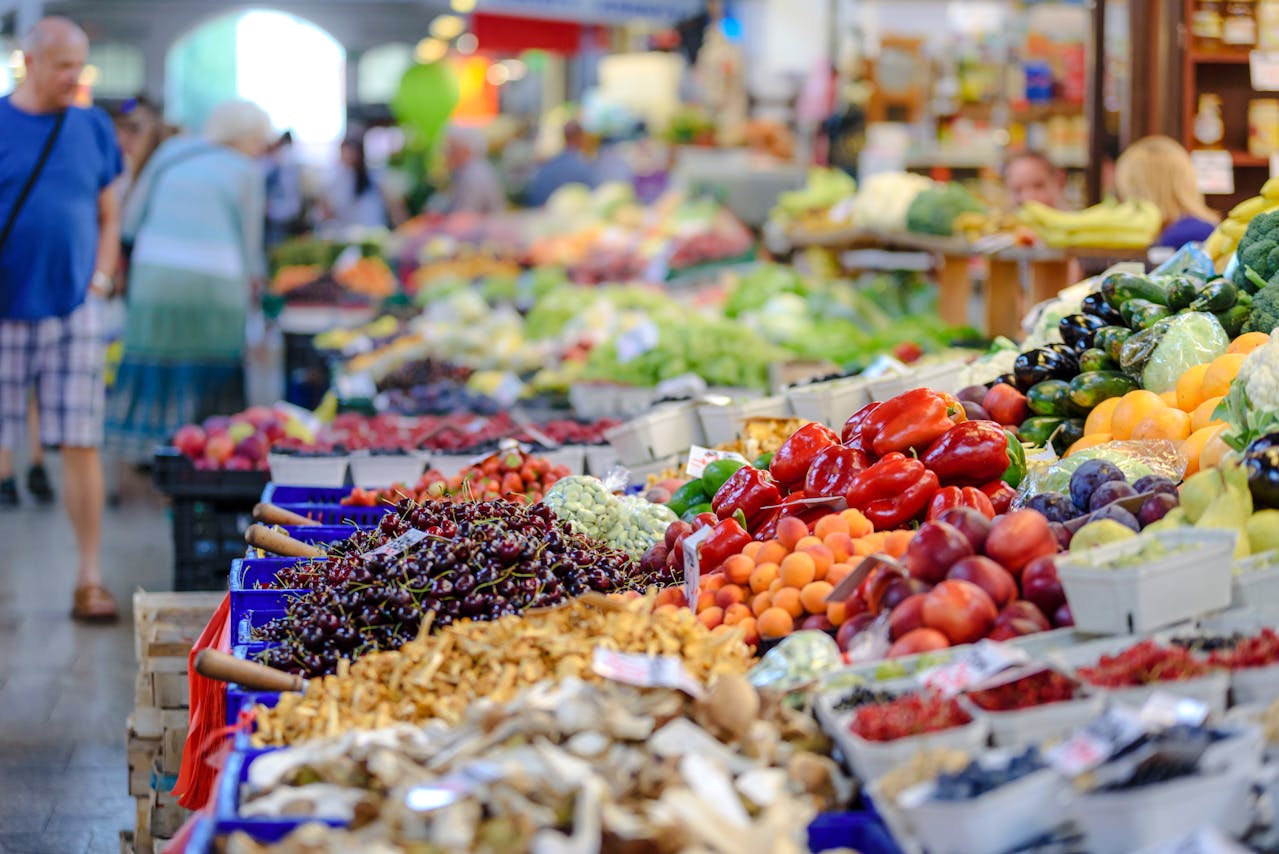Brazil’s economy is once again marked by rising food costs, signaling a reversal of the relief seen in 2023 when food prices contributed to disinflation.
As of September 2024, food prices have re-emerged as a major inflation driver, with analysts warning of continued upward trends in the months ahead. This resurgence has far-reaching implications for Brazilian households and the broader economy.
Food Prices on the Rise
The Broad Consumer Price Index (IPCA) rose by 0.44% in September 2024, largely fueled by a 0.50% hike in food and beverage prices. Food at home experienced a notable increase of 0.56%, breaking a two-month streak of declines. Among the items driving these trends, certain fruits saw sharp price hikes, with papaya and pear oranges rising by 10.34% and 10.02%, respectively. Essential commodities like ground coffee and sirloin steak also became more expensive, with prices increasing by 4.02% and 3.79%.
Meanwhile, some items provided slight relief, with onions seeing a dramatic price drop of 16.95%, and tomatoes and potatoes decreasing by 6.58% and 6.56%, respectively. Despite these isolated declines, the overall trend in food prices is upward, affecting the daily lives of Brazilian consumers.
Dining Out and Regional Variations
The cost of dining out also rose modestly by 0.34%, with meal prices slowing but snack prices accelerating. These price increases disproportionately impact lower-income households, as reflected in the National Consumer Price Index (INPC), which rose to 0.48% in September.
Regional disparities were evident, with Goiânia experiencing the highest inflation rate, driven by rising gasoline and electricity costs. These regional variations underline the diverse factors influencing Brazil’s inflationary landscape.
Agricultural and Wholesale Trends
The resurgence of food inflation is closely linked to agricultural and wholesale trends. The IGP-M wholesale index for agricultural products rose from 0.52% in August to 2.36% in September. Over the past 12 months, this index has risen by an alarming 9.58%, indicating a significant upward pressure on food costs.
Dry weather conditions and wildfires have exacerbated the situation, particularly impacting the quality of pastures and driving up meat prices. September saw a 2.97% rise in meat costs—the largest increase since December 2020—with sirloin, rump steak, and filet mignon prices climbing by 3.79%, 3.02%, and 2.47%, respectively.
Long-Term Trends in Food Inflation
The current wave of inflation builds on a turbulent history of food price volatility in Brazil. In 2022, food inflation rates frequently exceeded 11% year-over-year, peaking at 14.72% in July 2022. By October 2023, these rates had dropped below 0.5%, providing temporary relief.
However, the return of price hikes in 2024 signals a challenging road ahead for Brazilian households.
Energy and Transportation Costs Compound Challenges
In addition to rising food prices, the high costs of transportation and energy are putting further strain on household budgets. These factors are particularly pronounced in São Paulo, Brazil’s wealthiest city, where food security is increasingly under threat.
Economic and Social Implications
Food costs account for over a quarter of the budget for lower-income Brazilian families and nearly a fifth of the IPCA, Brazil’s benchmark consumer price index. The rising costs not only impact daily living expenses but also influence broader economic indicators such as Brazil’s base interest rate.
The slowing of service inflation offers a small counterbalance to the rising costs of essential goods. In September, service inflation decelerated to 0.15%, down from 0.24% in August, driven by an 8.75% drop in prices for entertainment activities like cinema, theater, and concerts.
Despite this slowdown, the broader picture remains concerning, with the 12-month accumulated inflation rate for services standing at 4.82%, its lowest since June.
Outlook for the Future
The current dynamics of Brazil’s inflation reflect a complex interplay of factors, including agricultural challenges, wholesale price trends, and regional disparities. Policymakers face mounting pressure to address these issues, as rising food prices and their associated costs continue to affect millions of households. One should also take care of their investments while the country faces inflation issues.
As Brazil navigates this new wave of inflation, the economic trajectory of the country will depend on effective policy interventions and global market conditions. For now, consumers must brace themselves for continued challenges in managing their household budgets.

